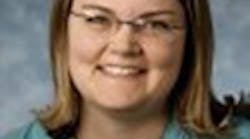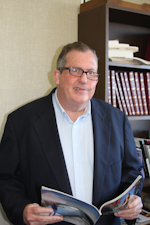Ashley Grill, RDH, will be addressing a common pet peeve in dentistry — insurance coding for periodontal procedures — when she presents a course at the RDH Under One Roof conference in Chicago on Aug. 16.
Grill, an assistant professor at New York City College of Technology, will lecture at 11:30 am on the final day of RDH Under One Roof. Grill’s seminar, “Variation In Terminology Affecting Periodontal Diagnosis,” is one of two general sessions in that time slot. The other general session is a course presented by Noel Kelsch, RDHAP, titled, “Ecstasy and Poppy Seed Tea: What does that mean to me?”
Grill recently added some insights about her course in a conversation with RDH eVillage.
RDH eVillage:Confusion over coding, particularly as it is applied by a specific dental practice’s philosophy, is more common than it should be. Do you have a pet peeve about the variation in terminology in periodontal coding?
Grill: I think my biggest pet peeve with dental coding is something I've been hearing dentists and dental hygienists complain about for years: "The insurance company dictates treatment." The problem isn't the insurance company. A lack of diagnosis codes in dentistry probably contributed to the procedure coding in scaling and root planing being embedded with disease codes. By that I mean, scaling and root planning, according to the CDT, should only happen when periodontitis is present.
But we all have seen patients with reversible gingivitis and ledges of heavy calculus deposit that don't fit our procedure coding CDT 4341 guidelines. Somewhere, probably during the 1970s, a committee decided 4341 only belongs with periodontitis. I know you could do a 4355, but it isn't enough time to adequately treat heavy deposit.
In my dental utopia, the diagnostic and procedure codes would be separate. Because I don't think dentist and hygienists are wrong who say "procedure codes to dictate care" as the current CDT is written.
-----------------------------------------------------------------------------
Other articles about RDH Under One Roof include:
Gueits explains 'ortho link' to be presented at RDH Under One Roof seminar
Miller points to 'business of hygiene' in UOR seminar
Most Intriguing Courses of UOR 2014
-----------------------------------------------------------------------------
RDH eVillage:You will be spending some time discussing differences between medical diagnosis codes and dental procedure codes. Why is it important to you to discuss this with the dental hygiene audience at RDH Under One Roof?
Grill: As the profession moves forward with the Affordable Care Act and health exchange plans become more common, children's oral health is a covered service. More and more hygienists may find themselves working in practices integrated into the health system through hospitals, and other public health agencies.
Having a basic understanding of the backbone of medical and dental diagnosis and procedure coding is essential, since diagnosis coding is mandated for medical billing. Currently, there is little focus on coding in dental education. We graduate students who are not prepared with a focus on accurate billing and coding; we focus on their clinical skills.
But learning skills to understand how coding works is essential for ethical practice. Not only is it important for newly graduated professionals, but also for experienced providers. I think everyone should do what they say, and know what they do. Without an understanding of these codes, you may be putting yourself at risk for the "f" word — what the insurance industry calls fraud.)
RDH eVillage:You also want to set aside time to discuss the PEARL Network. Many of the studies initiated by the network are directed toward restorative dentistry, but there was the 2010 study on periodontal diagnosis. Will you be talking about PEARL in general terms, or is the discussion focused on the periodontal diagnosis study?
Grill: I will focus in on the PEARL periodontal diagnosis study, but hope to share a summary of the PEARL Network findings. It is exciting work that focuses on restorative dentistry, but is relevant to patient care.
RDH eVillage:What do you hope will be some key takeaways for hygienists at UOR that will enable them to better confront periodontal issues in their practices?
Grill: I hope that by the end of the lecture everyone will know what system they are using to diagnose in their practice — a few systems will be highlighted — and that the audience will be inspired to think outside chairside experience to see their practice in the dental industry and dental hygiene from a new perspective. I also hope the audience finds practical advice on how to navigate the system for the best of the patient and practitioner.
To learn more about Grill’s seminar at RDH Under One Roof, click here.
To learn more about Kelsch’s seminar at RDH Under One Roof, click here.
To view all information about RDH Under One Roof, click here.








